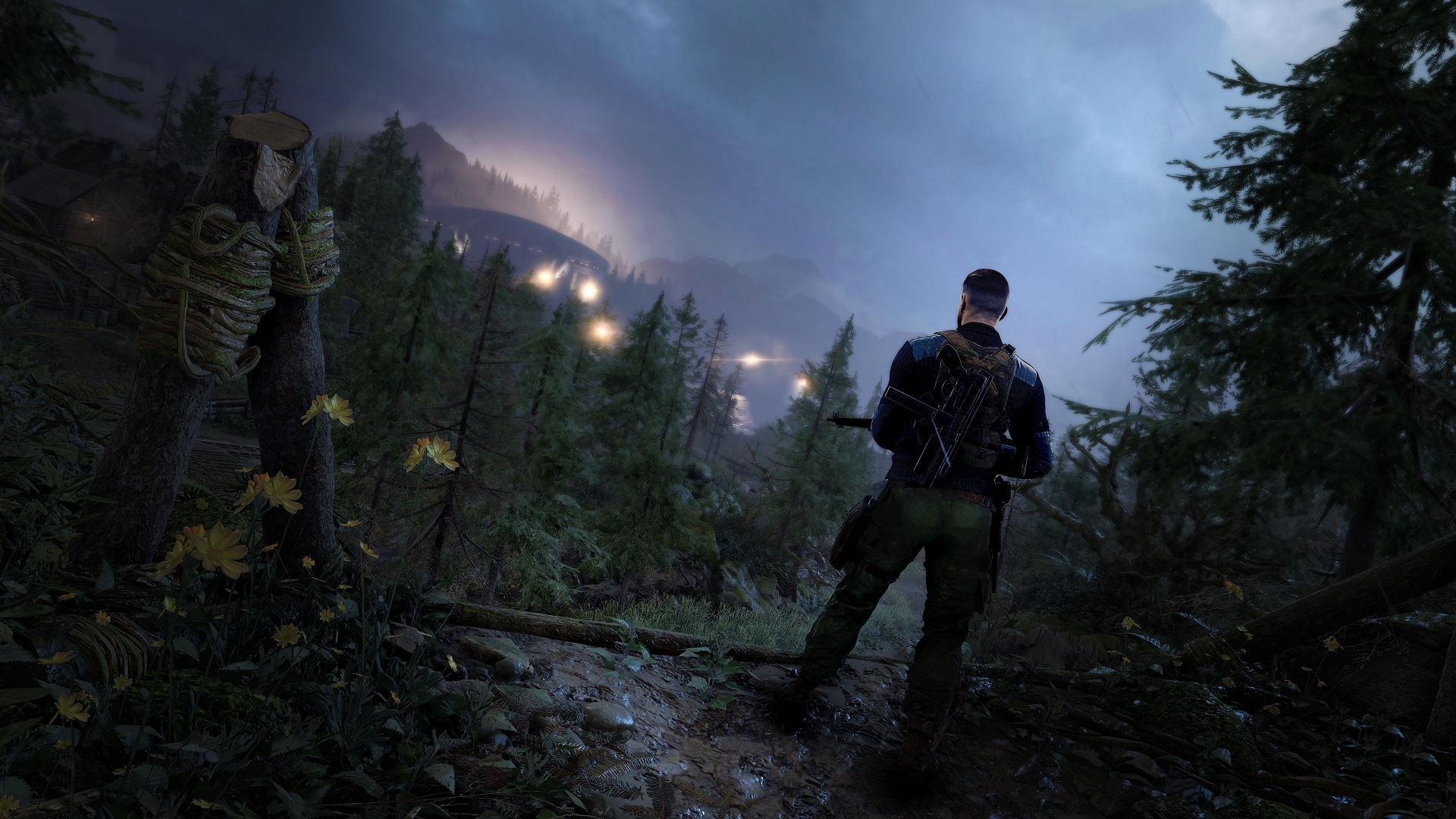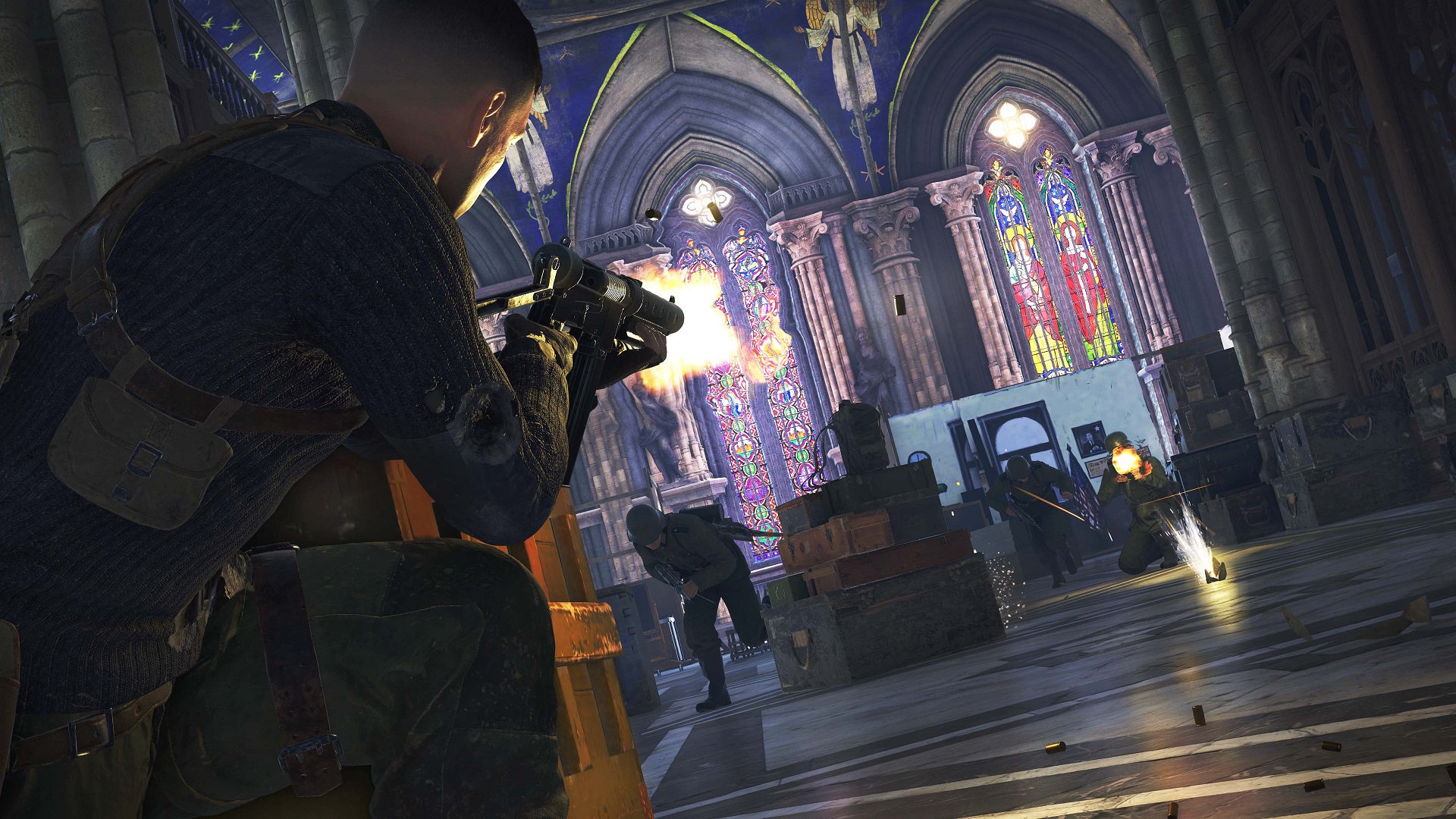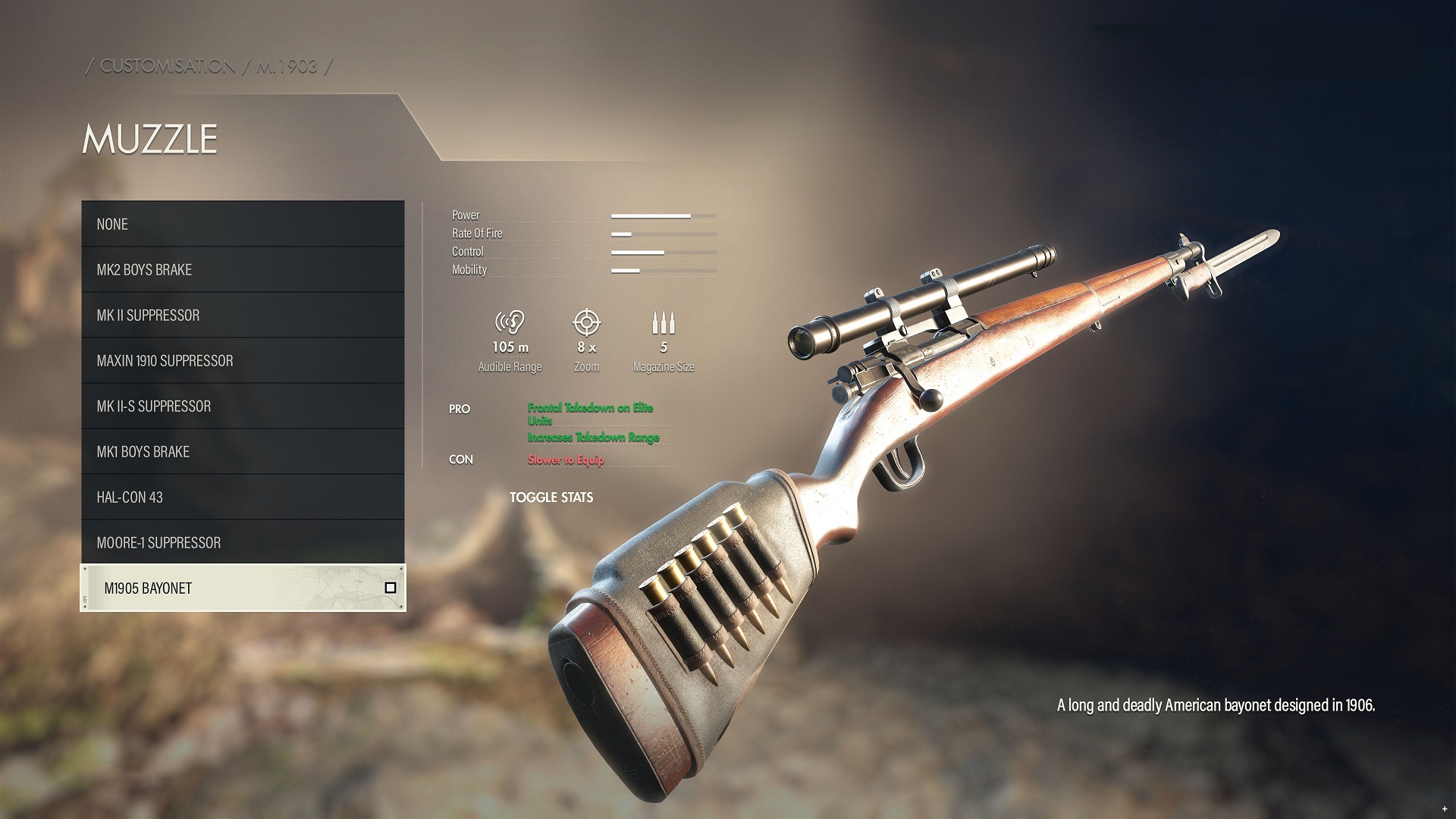Sniper Elite 5, the latest installment in the WWII shooter series that lets you shoot Nazis in the balls, is due to release in just under a month for PC, PlayStation, and Xbox platforms. It brings the action to France around the D-Day invasion and sees protagonist Karl Fairburne once again hunting down high-ranking Third Reich slime to stop another of the Fuhrer’s nefarious plots.
I was able to go hands-on with a preview version of the game in mid-April, wreaking havoc against Nazi rank and file in Occupied Residence, the expansive second level of the game that sees you infiltrating a heavily-fortified French villa.
Fairburne’s latest deployment doesn’t rewrite the series’ history books, carrying forward some of the better parts of Sniper Elite 4 (as it should). Still, it does add new systems and mechanics that make killing Nazis more efficient and, most importantly, more fun.
In Occupied Residence, you’re initially dropped on the outskirts of an idyllic French villa, forced to make your way through pastoral fields and bucolic forests crawling with Nazi scum. Your goal, of course, is to reach your target, learn what you can of the greater operation afoot, and take him out. Thing is, he’s hidden deep within a sprawling estate surrounded by watchtowers, traps, and patrols.
So far, most things in Sniper Elite 5 are familiar, but it’s immediately grander; there’s a decided increase in fidelity over Sniper Elite 4. The graphics are crisper, making the staple X-ray killcam even more visceral and brutal. Objectively, Occupied Residence likely isn’t larger than anything in SE4, but how Rebellion has crafted the level adds a sense of multifaceted sprawl.
The forest area, for example, is relatively small but could be the majority of the map, like Sniper 4‘s Regilino Viaduct, if Rebellion so chose. But its pathways and terrain forge a rugged, dangerous path through only one portion of the map, where hills, streams, and glens hide quick death from machinegun emplacements and large squads of patrolling soldiers before branching out into wider open areas.
It’s not as stark a contrast as it may sound, though. The area blends nicely into the golden fields and workhouses on the western side of the map and then into the estate’s Victorian gardens in the northeast. Such distinct locations blend naturally into one of the more diverse (and visually compelling) levels in the series so far. Hopefully, it’s a design choice that holds up through the rest of the game’s 10 levels.
Neatly, a new addition to the Sniper franchise shares something in common with the Hitman series. Whereas previous Sniper entries see you enter a map from a single location, shooting or stealthing your way through the same enemy patrol patterns over and over again, Sniper Elite 5 allows you to unlock additional starting points in various portions of the map, just as you can in the latest Hitman games.
Most of the fun in Sniper Elite is going through those same patrols multiple times, perfecting loadouts and solidifying tactics until you’ve become an unstoppable and incredibly efficient Nazi killing machine. All but diehards can tire of such overt repetition. Having access to multiple ingress points on top of even more diverse inter-level pathways makes replaying areas more dynamic and conducive to a variety of playstyles.
And that increased sense of freedom is something Rebellion has emphasized with Sniper Elite 5. Without compromising the series’ core, they want this to be a game where stealth and “going-loud” are equally viable. Perhaps my biggest gripe with the series at large has been its sharp distinction between those two playstyles. Though at its best in Sniper Elite 4, run-and-gun has always been a dicey option at best — and an infuriating one at worst.
I think Rebellion may have changed that with one, simple addition: first-person ADS for all weapons.
Sniper Elite 5 is still a third-person, over-the-shoulder shooter; there is no first-person camera setting that turns it into Call of Duty, to be clear. Check out Sniper Elite VR for an experience like that. But everything from the Welrod to the MP44 now has both third-person aiming and first-person aiming options smartly mapped for easy switching.
The power of this change is tangible and became evident the first time I miscalculated the number of Nazis patrolling near my position in the forest. I leveled my SREM-1 Enfield, held my breath, and (satisfyingly) drove a bullet through the kidney of an MG42 gunner. The shot wasn’t masked by noise (there weren’t any generators or alarms about, no planes flying overhead), and his comrades poured down from the hills around the emplacement.
I was able to pick a few off as they descended into the riverbed, but three quickly reached my position, typically a death sentence in previous games. As they took up positions in the grass and shrubbery on one side of the glen, I quickly switched to an MP44, aimed down the iron sights in first-person view, and pulled off two quick and precise headshots to even the odds.
It was perhaps the first time I’ve ever felt comfortable when rushed by enemies in a Sniper Elite game. I felt cool, calm, collected — just like a seasoned Fairburne would.
Another change I’m excited to see more of comes in the form of gun and loadout customization in-mission. Sometimes even the best-laid plans crumble once the bullets start to fly (or TNT explodes, as it may be). In previous games, only wit, skill, and patience could compensate for an inadequate loadout. But now you have the ability to upgrade weapons and change kit at workbenches inside levels. Occupied Residence, for example, has three of them, all well hidden.
Once you do come across one, you can swap entire kits, singular weapons, and individual attachments for ones perhaps better suited to the situation at hand. Find out you need better kit for a particularly troublesome checkpoint? Backtrack to a workbench and try a different loadout.
The best part is that while the new system offers more granular moment-to-moment control than ever before, it’s not intrusive or even necessary. You don’t have to use workbenches at all if you choose not to; weapon and loadout customization is available before missions, as well, letting you play Sniper 5 in myriad different ways, old and new alike.
The only caveat here is that it appears certain attachments are locked behind finding specific workbenches, so even if you don’t choose to use them, they’re still worth seeking out for future upgrades and augments.
There’s still a ton I haven’t yet tried out in Sniper Elite 5, such as multiplayer, co-op, and Axis invasions. I haven’t seen other levels, either. On top of that, there are many other systems yet to talk about not covered in this preview, such as unique in-mission weapons, skill trees, and traversal.
I will say traversal is currently a sticking point for me, alongside difficulty balancing and a ho-hum photo mode. You can climb up roofs and vines just fine but can’t vault simple fences, it seems; the difficulty spike between easy and medium is far too drastic; and the photo mode is barebones, lacking some of the most basic tools available in other games, making it feel tacked on to simply check a “features” box.
Despite those things, what I have seen in just a single level has me excited for the full release and what else is in store for Fariburne’s latest mission. Stay tuned for our review around the game’s May 25 release on PC, PS4, PS5, Xbox One, and Series X|S.










Published: Apr 27, 2022 3:34 PM UTC